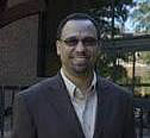Commentary on Acts 4:5-12
As is common, the lectionary sections off (shorter) passages from within their larger narrative context. This passage, with its emphases—on empowerment (by the Spirit) to speak with courage and knowledge and a teaching of the exclusive nature of the Jesus message—is segmented from within a larger, tension-filled debate with the respected leadership of the Jerusalem temple. (These leaders will recognize the educational “ignorance” of the spokespersons, yet will honor what these Christ-followers gained from their experience with Jesus in 4:13.)
Our immediate passage of concern (4:5–12) begins a new day (“the next day”), which names the leading figures of the high priesthood, a formal (brief) inquisition, Peter’s response (aided by the Spirit), and Peter’s final claim.
Crucial to Luke’s description of Peter is that he speaks as one “filled with the Holy Spirit” in order to emphasize the origins of his courage and knowledge (4:13). Within the book of Acts, to be “filled with,” or empowered or inspired by, the Spirit is Luke’s theological description of how the Christ-followers were able to carry on the mission in the absence of Jesus. The portrayal is routinely followed by a spoken proclamation of some kind.
Elizabeth was filled with the Spirit and blessed Mary (“Blessed are you among women,” Luke 1:41–42). Zechariah (Elizabeth’s husband)—following a period of divinely imposed selective mutism—is “filled” in order to prophesy that God had sent “a mighty savior” to redeem Israel (1:67–69).
Within the book of Acts, Luke continues to depict leading characters in this manner with the ability to speak the Spirit’s words. Saul not only regains his physical sight and receives (water) baptism (as part of the Spirit’s activity), but (after several days) Saul begins to proclaim Jesus as “God’s Son” (9:17–20). A few chapters later, Saul again will be empowered by the Spirit to speak harshly against the magician Elymas (13:4–12).
So, the language of a Spirit-empowered Peter in our lectionary passage prepares readers for the Spirit-inspired spoken word despite the challenging context in which these Christ-followers find themselves.
Within the narrative scene, Peter’s response (verses 9–10) answers the second question from his inquisitors (“by what name?”); Luke’s narrative description of Peter as one “filled with the Spirit” (verse 8) answers the first question for the reader (“by what power?”). Peter’s attention to the “name” (in other words, “there is no other name”; 4:12) maintains a focus on the original query (4:7) and taps into a significant early confession among Christ-followers (see also Acts 22:16; 1 Corinthians 1:2).
The exclusive nature of this message raises a conundrum for many contemporary preachers. How do we preach an exclusive message in the pluralistic society in which we live? For some of us, the objective is simple—just preach it (as the text says) and allow the Spirit to take the message to the hearts that remain open. For others of us, the objective is more complex—we recognize that a preached word can be more effective if the context of our contemporary age is carefully considered.
Relevant to Peter’s claim of “salvation” (4:12; sōteria) is the specific event of healing (4:9–10; sōdzō)—the “wholeness” that is fundamental to the proclamation. The gospel materializes in embodied acts. The gospel affects the physical as well as the mental, emotional, and spiritual. This story emphasizes the wholeness that comes in the message and power of Jesus. The exclusive claim may be less important than the impact of the embodied outcome. It is a message that touches bodies as well as souls. In fact, it may be preferable to translate sōteria in verse 12 as “healing” here in light of the immediate context: “There is healing in no one else …”
For early Christ-followers (Paul, Luke, and others), Jewish scriptures point toward the coming Messiah in the person of Jesus Christ as central to God’s plan. This required a careful (and, at times, creative) rereading of the scriptures. Interpretation of the “stone”—whether Psalm 118:22 (as in Acts 4) or Isaiah 28:16 or Isaiah 8:14—is one example and was popular among the early Christ-followers (see also Matthew 21:42//Mark 12:10//Luke 20:17; 1 Peter 2:4, 6–8; Romans 9:33).
First Peter offers a unique view in which several “stone” passages are collected into an interpretive message presented to the community. Luke’s Jesus in the Gospel will cite Psalm 118 on the heels of his parable of the tenants. Jesus emphasizes God’s rejection of the vineyard tenants who failed to care for the vineyard properly. Jesus’ opposition—“the scribes and chief priests”—recognize that that parable refers to their activities but, ironically, do not fully grasp the significance of their desire “to lay hands” on Jesus (that is, the “heir” and the “stone”).
Luke’s Peter in Acts will make explicit that Jesus (“this one” in Greek) is the rejected “stone.” The opposition in Acts responds more favorably, simply ordering them not to proclaim their message any further (4:13–18).
This is a story about power and identity, as is often the case (4:7). The content and the origins of the message drive this confrontation. Oftentimes, those in power wish to maintain control at any cost, even if someone comes along with a better idea for the community.
How should we view our congregational settings in relationship to the power of the empire? Are false imprisonments common among those doing acts of justice? What might it mean—in a democratic society—to “lock up” the opposition? Luke portrays a significant power differential in this account. There are those who have earthly power (for example, Caiaphas) and there are those who have heavenly power (for example, Peter and John) through the Holy Spirit. And Luke calls on his readers to desire the latter. This requires deep, communal discernment.
Preachers, in particular, and all ministers (lay or otherwise) must recognize that it is the power of the Spirit (“to be filled” in Luke’s discourse) that accomplishes any good work among us. The labor that goes into crafting careful messages—on the relationship between text and world—will be unfulfilled if God’s Spirit does not touch all who hear.
Finally, on the Fourth Sunday in Easter (weeks removed from the grand Easter occasion), what might this passage mean? Preachers must keep preaching no matter the opposition or the situation in the world. Preachers should recognize that the Holy Spirit will provide the necessary words when the proclaimer does not know what else to say. Preachers must be aware that true salvation is always holistic, a healing balm for a sound mind and a sound body



April 21, 2024